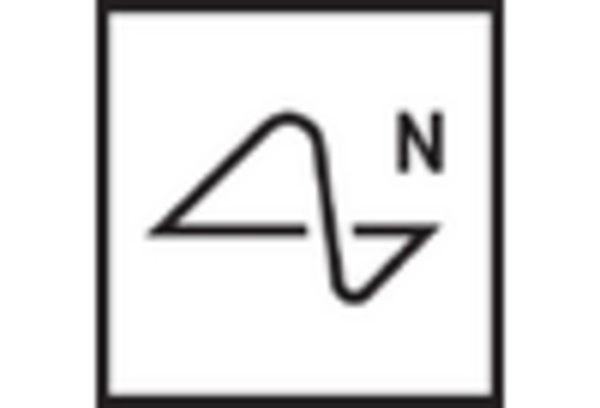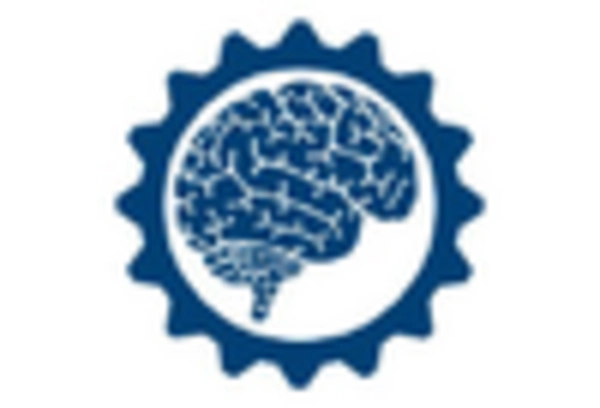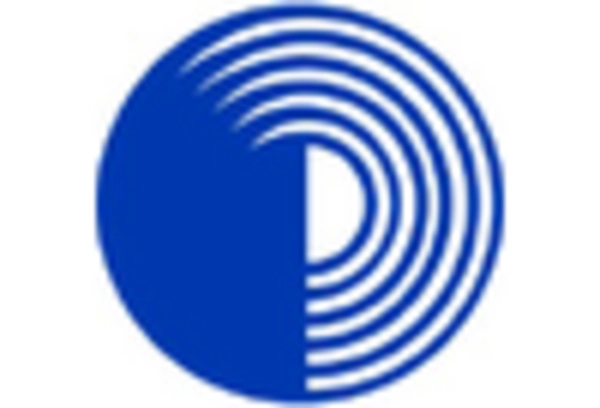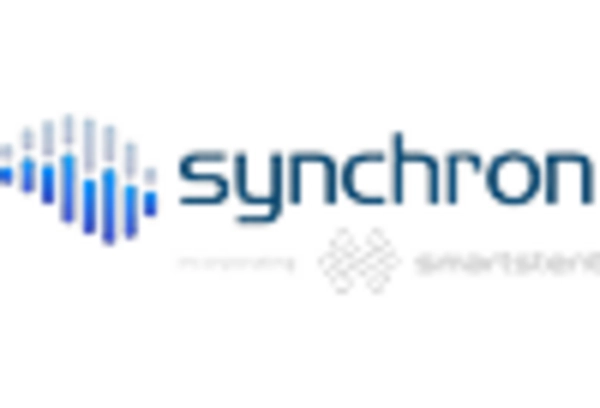Growing Demand for Assistive Technologies
The brain computer-interface market is witnessing increased demand for assistive technologies, particularly among individuals with disabilities. In Canada, approximately 6.2 million people live with disabilities, creating a substantial market for solutions that enhance their quality of life. Brain-computer interfaces offer innovative ways to assist individuals in communication, mobility, and daily activities. The Canadian government has implemented various programs to support the development and adoption of assistive technologies, which is likely to drive growth in the brain computer-interface market. Furthermore, as awareness of these technologies increases, more healthcare providers are likely to incorporate them into their services, potentially leading to a market growth rate of 12% annually. This trend underscores the importance of addressing the needs of individuals with disabilities through advanced technological solutions.
Increased Focus on Mental Health Solutions
The brain computer-interface market is increasingly aligned with the growing focus on mental health solutions in Canada. Mental health issues affect a significant portion of the population, with approximately 1 in 5 Canadians experiencing mental illness annually. Brain-computer interfaces have the potential to provide innovative therapeutic options, such as neurofeedback and cognitive training, which can aid in the treatment of various mental health conditions. The Canadian government has recognized the importance of mental health, investing over $100 million in mental health initiatives, which may include funding for research in brain-computer interface applications. This focus on mental health is likely to create new opportunities within the brain computer-interface market, as stakeholders seek to develop effective solutions that address these pressing challenges.
Regulatory Support and Framework Development
The brain computer-interface market in Canada is benefiting from the establishment of regulatory support and framework development. The Canadian government is actively working to create guidelines that ensure the safe and ethical use of brain-computer interfaces. This regulatory environment is crucial for fostering innovation while protecting users' rights and privacy. As regulations become clearer, companies are more likely to invest in the development of new technologies, knowing that they will be operating within a supportive legal framework. This could lead to an increase in market confidence and investment, potentially driving growth in the brain computer-interface market by an estimated 10% over the next few years. The establishment of these frameworks is essential for the long-term sustainability of the industry.
Technological Advancements in Neurotechnology
The brain computer-interface market in Canada is experiencing a surge due to rapid technological advancements in neurotechnology. Innovations in signal processing, machine learning, and neuroimaging are enhancing the efficacy and accessibility of brain-computer interfaces. For instance, the integration of artificial intelligence is enabling more accurate interpretation of neural signals, which is crucial for developing user-friendly applications. The Canadian government has recognized the potential of these technologies, allocating approximately $200 million to support research initiatives in this field. This investment is likely to foster collaboration between academic institutions and private enterprises, further propelling the growth of the brain computer-interface market. As a result, the market is projected to expand at a compound annual growth rate (CAGR) of around 15% over the next five years, indicating a robust future for neurotechnology in Canada.
Rising Collaboration Between Academia and Industry
The brain computer-interface market is experiencing a notable rise in collaboration between academia and industry in Canada. Universities and research institutions are increasingly partnering with technology companies to develop innovative solutions that leverage brain-computer interface technologies. This collaboration is often supported by government grants and funding initiatives aimed at fostering innovation. For example, partnerships have emerged in areas such as neuroprosthetics and cognitive enhancement, leading to the development of cutting-edge applications. The synergy between academic research and industry expertise is likely to accelerate advancements in the brain computer-interface market, potentially resulting in a market growth rate of 14% over the next five years. This trend highlights the importance of collaborative efforts in driving technological progress and market expansion.
















